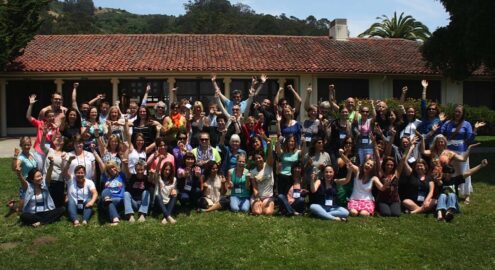What Are They?
Character strengths are the positive qualities individuals have—as reflected in their thoughts, feelings, and actions—that promote the well-being of themselves and others. Though people may value different strengths to different extents, in general, parents and educators across cultures value these qualities and try to cultivate them in children and youth.
The idea of desirable character traits has existed since ancient times, but research on them is more recent, spurred by the rise of positive psychology—a movement that endeavors to use the tools of psychology not only to identify and fix problems, but also to recognize and foster positive qualities and flourishing.
Research on character strengths in both adults and youth tends to use the Values in Action (VIA) Classification, a framework that identifies 24 character strengths, which are often organized under six core virtues. The virtues are broader characteristics that have been valued in philosophical and spiritual traditions across time and place, while the character strengths function as components of or pathways to the virtues. The six virtues and their corresponding character strengths of the VIA are:
- Wisdom (creativity; curiosity; judgment; love of learning; perspective)
- Courage (bravery; perseverance; honesty; zest)
- Humanity (love; kindness; social-emotional intelligence)
- Justice (teamwork; fairness; leadership)
- Temperance (forgiveness; humility; prudence; self-regulation)
- Transcendence (appreciation of beauty and excellence; gratitude; hope; humor; spirituality)
In this view, good character is not a single attribute, but is multidimensional, a “family” of positive traits that may each be evident to different extents in different people. Each student has a unique profile of strengths, with some strengths being more developed and others less so, regardless of how they compare to other students.
One student may be particularly strong in curiosity, love of learning, and perseverance, while another may be strongest in kindness, humility, and fairness; yet another could have zest, social-emotional intelligence, and teamwork as top strengths.
Why Are They Important?
Research with young people has found that character strengths relate to multiple aspects of well-being, including happiness, mental/emotional health, social relationships, and academic achievement.
Character strengths help make kids happier.
- Many character strengths are associated with higher satisfaction with life. In one study, for young children (ages 3-9), the strengths of love, hope, and zest were particularly associated with happiness; for older kids, happiness was most related to these same strengths (love, hope, and zest), plus gratitude.
- Strengths relating to transcendence and temperance generally relate to higher life satisfaction in children and youth.
- Adolescents who participated in character strength-based exercises at school showed improvements in life satisfaction compared to other students.
Character strengths promote better psychological health.
- Studies have shown that certain character strengths are associated with fewer psychological problems among youth, both internalizing (e.g., hope, zest, and leadership associated with lower levels of anxiety and depression) and externalizing (e.g. perseverance, honesty, prudence, and love associated with less aggression).
- Other-directed strengths such as kindness and teamwork predict fewer symptoms of depression over time among youth.
Kids with character strengths get along better with peers.
- Students rated as more popular by their teachers tend to rate more highly on leadership and fairness, as well as on temperance strengths such as self-regulation, prudence, and forgiveness.
- Other-directed strengths such as kindness, teamwork, and social-emotional intelligence are associated with better social functioning at school.
Character strengths increase academic adjustment and success.
- Character strengths seem to help students adjust to school, from the beginning of elementary school through middle school and beyond; they have been associated with satisfaction with school, academic self-efficacy, and positive classroom behavior.
- Various strengths relate to academic achievement across ages, from middle school to college, above and beyond the effect of IQ.
Practices

The Pendulum

Encouraging Moral Character Through Language

Exemplars Who Inspire Intellectual Humility

Introduction to Forgiveness

Understanding Inherent Worth: A Path towards Forgiveness

Learning from Courageous Forgivers

Creating Space for Forgiveness by Letting Go of Anger

Student Self Check-In Journal

Challenging Gender Stereotyping and Homophobia in Sports

Confronting the -isms

Tug for Truth

3-2-1 Bridge

Random Acts of Kindness

Take-Home Skill: Humility Reflection for Teens

Honesty Commitment for Students

Purpose Compass

Discover Your Great Full Self

Seeing the Good in Others

Do you want to dive deeper into the science behind our GGIE practices? Enroll in one of our online courses for educators!





